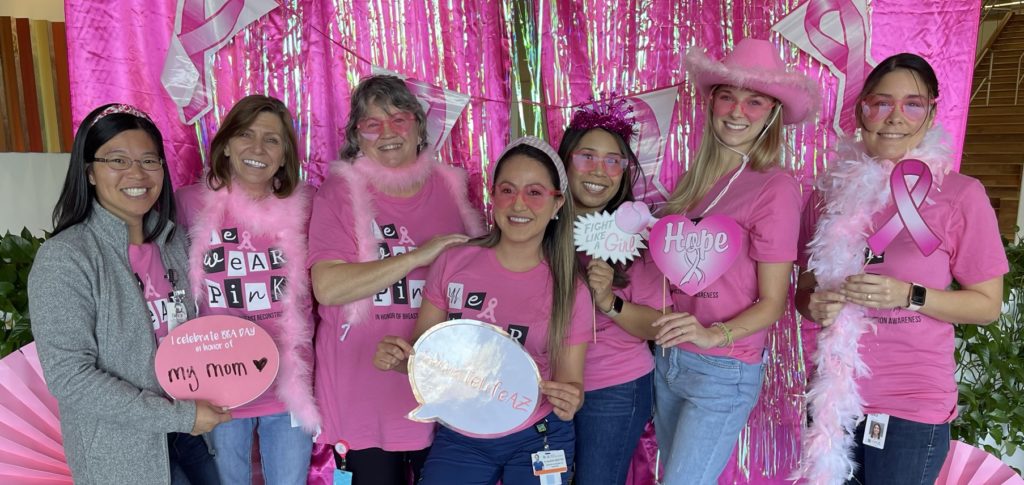5 things you didn’t know about Deaf Awareness
DEAF AWARENESS MONTH
In September we celebrate d/Deaf* Awareness Month. The initiative aims to raise awareness around the language, culture and diversity of the d/Deaf community. In 1958, the first ever International Day of the Deaf was celebrated by the World Federation of the Deaf (WFD) on Sept. 23. This one day of awareness was later extended into a full month.
DNA connects with the hearing-impaired and d/Deaf population through events like the DeafNation Expo at Legacy Park on Oct. 7. Since 2003, the DeafNation Expo showcase has brought more than 1 million attendees to hundreds of events all over the U.S.
FIVE THINGS TO KNOW ABOUT DEAF AND HARD OF HEARING PEOPLE
- *There is a difference between “the lowercase d” deaf and the “the uppercase D” Deaf. When someone identifies themselves as deaf with a lowercase d, it might mean they see their hearing loss as more of a medical condition and may have not had as much time immersed in the Deaf community. Someone may identify as Deaf with a capital D if they identify as a member of the Deaf community and/or “culturally Deaf.” Using “d/Deaf” can be one way to include both groups of people in your writing. You can read more about this difference here.
- Over 1.1 million Arizonans are hard of hearing and more than 20,000 people in Arizona are culturally Deaf (ACDHH).
- More than 90% of deaf children are born to hearing parents (NIDCD).
- American Sign Language, commonly referred to as ASL, is not a universal language. Some countries will use different signs, and there are several regional variations and dialects depending on where you are in the world.
- Around 13% of the U.S. population is hearing impaired or deaf. (NIDCD).
What are donated placentas used for anyway?
Give birth, give hope
Did you know that expectant mothers with a scheduled C-section can donate their placenta after giving birth? The donated placenta can become a priceless gift with the potential to aid in the healing of wounds and various surgical procedures.
Placentas are composed of cells and materials that stimulate the body’s own healing mechanism, reducing pain and inflammation to speed up the healing process. Learn more about the most common uses below:
Injuries
After it is developed into life-changing therapeutic products, a donated placenta has the potential to help heal injuries like:
- Burns
- Sport injuries
- Painful, non-healing wounds like diabetic foot ulcers
- Other wounds
Procedures
Donated placentas are also often used to assist in a variety of surgical procedures, including:
- Dental procedures like gum grafts
- Orthopedic procedures like nerve wrap repair and ligament repair
- Reconstructive procedures like breast reconstruction for breast cancer patients, hernia repair and colon resection repair
- Spinal procedures to alleviate pain from scar tissue
Helping others

“I want my girls to know that there are still good people in the world who are willing to help if they can,”, says Tiffany Nelson, mother and placenta donor.
During Tiffany’s pregnancy with her second daughter, her boss and family friend were suffering from a chronic wound. When she heard about the benefits of placenta donation, specifically about its potential to heal wounds, she immediately wanted to help.
“If you have the chance, donate. Otherwise, the placenta gets thrown away unless you have other plans,” she says.
Hope delivered
Placenta donation has the potential to bring healing alongside a new life. It truly is “hope delivered”.
Click here to learn more about birth tissue and placenta donation.
Happy employees save more lives
Not only did Donor Network of Arizona (DNA) break records in organ donation in July, (check out our recent blog post), but 98% of our employees are happy doing it, based on a third party survey. DNA is proud to earn the recognition of 2023 Top Companies to Work for in Arizona by Best Companies Group, Bridgetower Media, Arizona Capitol Times and BestCompaniesAZ for the second consecutive year.
Top Companies to Work for in Arizona for 2023 is a highly selective list of award-winning employers withing the state of Arizona. Rankings are based on employee surveys that included topics, such as engagement, pay and benefits, job satisfaction, training and development, leadership, culture and overall work environment.
Looking for a career in saving lives? See why Jason Haile and others find this work so meaningful.
Our purpose is people
“Why is this so important? Because our work is about people,” says Tim Brown, president and CEO of DNA. “Our work doesn’t happen without people. Part of doing that is investing the time and energy into making DNA the best possible place to work so that we attract the best talent we can.”
Based on the same survey, 92% of DNA employees agree we have overall great engagement, and 90% said we have a consistently positive employee experience. DNA scored higher than even the 2022 award-winning results with 98% of staff who responded they are proud to work for DNA and 97% feel their job provides them with a sense of meaning and purpose.
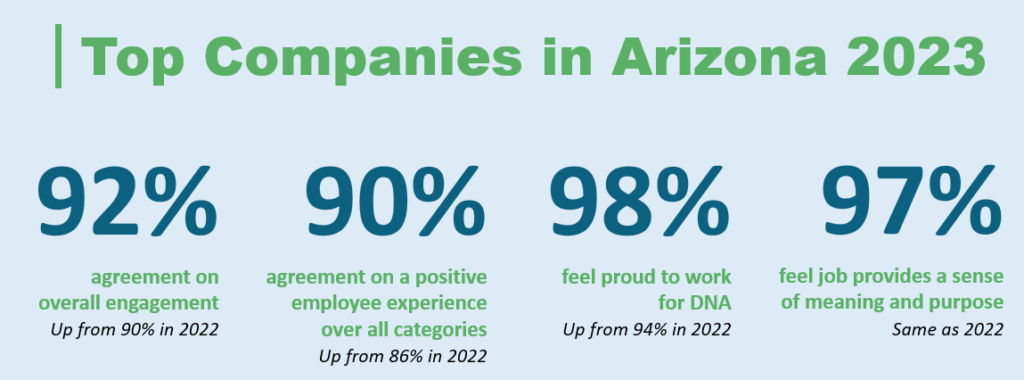
Everyday impacts
Denise Gredler, founder and CEO of BestCompaniesAZ, not only congratulated our team and leadership for great feedback but emphasized how challenging it is to achieve ranks in the 90th percentile—some companies having participated for decades and never going beyond the range. Gredler shared how our work has also impacted her life personally.
“My sister passed away and I didn’t know she was signed up as a donor,” Gredler says. “I have to say that [DNA’s] heart, compassion and how you handled that phone call for a family, that was still in shock, was first class.”
BestCompaniesAZ works with community partners to help strengthen and market their unique employer brands on a regional and national level. With years of experience and leadership in areas such as organizational culture development, strategic human resources management, employer branding, public relations and talent marketing. BestCompaniesAZ is best known for creating large-scale workplace awards programs and events such as the Best Places to Work in the Valley, Arizona’s Most Admired Companies, Top Companies to Work for in Arizona.
To join our amazing team, visit our careers page.
For complete details about the Top Companies to Work for Arizona, visit:
https://bestcompaniesaz.com/top-companies-current-winners/
Record-breaking generosity
Arizona temperatures weren’t the only record breakers in July 2023. Donor Network of Arizona (DNA) reached a record-breaking 39 Arizona organ donors in July! The generosity of these donors and their families led to 117 organs for transplant, which saved 104 lives.
The 117 organs transplanted is just one shy of Arizona’s record of 118 organs transplanted in a single month, but 104 lives saved is a new record for DNA. What a number to celebrate!
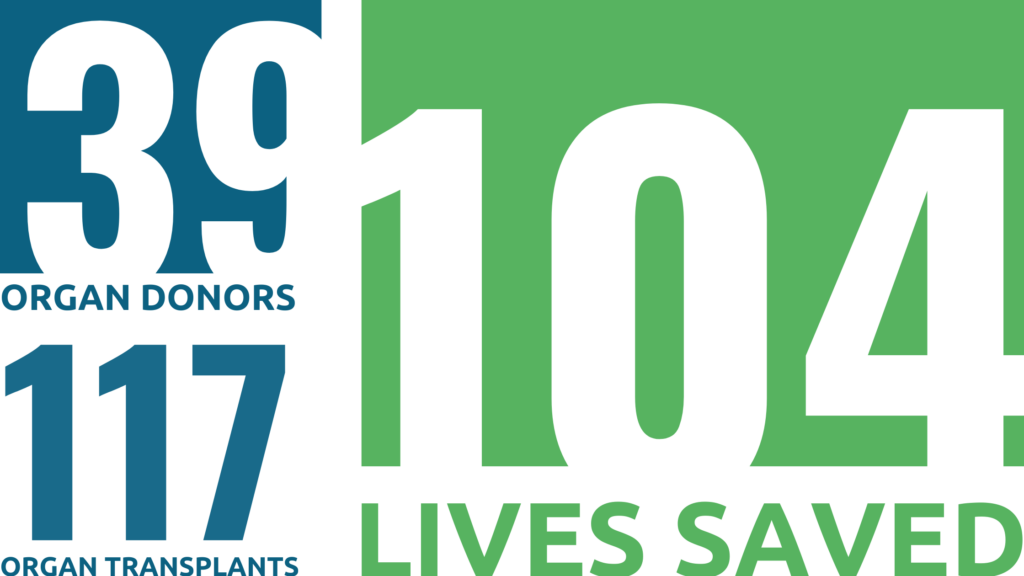
Be a part of the ripple effect
The overwhelming generosity of these donors and their families will have a ripple effect on donor families, recipients, recipient families and friends in our community.
You too can join in on the generosity. Add yourself to the DonateLifeAZ Registry when you apply for or renew a driver’s license or state ID at an ADOT MVD or authorized third party office. You can also register online today at DonateLifeAZ.org.
You “drive” registrations
IT'S DRIVER LICENSE PARTNERS SAVE LIVES MONTH
August is a month full of celebration over at Donate Life Arizona. We have long recognized the lifesaving efforts of our driver license partners for giving the public an opportunity to register as organ and tissue donors when applying for a driver license or state ID, especially this month for Driver License Partners Save Lives Month! More than 95% of Arizonans currently registered to save lives through organ donation made that generous decision while visiting a motor vehicle services office. To our partners: THANK YOU! You are truly lifesavers.
To demonstrate our gratitude, DNA began sending delicious Fairytale Brownies to the frontline staff of these offices in August 2015. Like clockwork, they knows these tasty treats will arrive on the 8th month every year.
We might have even helped inspire Donate Life America who formally celebrated its first National DMV Appreciation Week in September of 2016. Most organ procurement organizations do, in fact, celebrate their driver license partners each September, but in keeping with Arizona’s maverick spirit, we are sticking with August.
when it becomes real
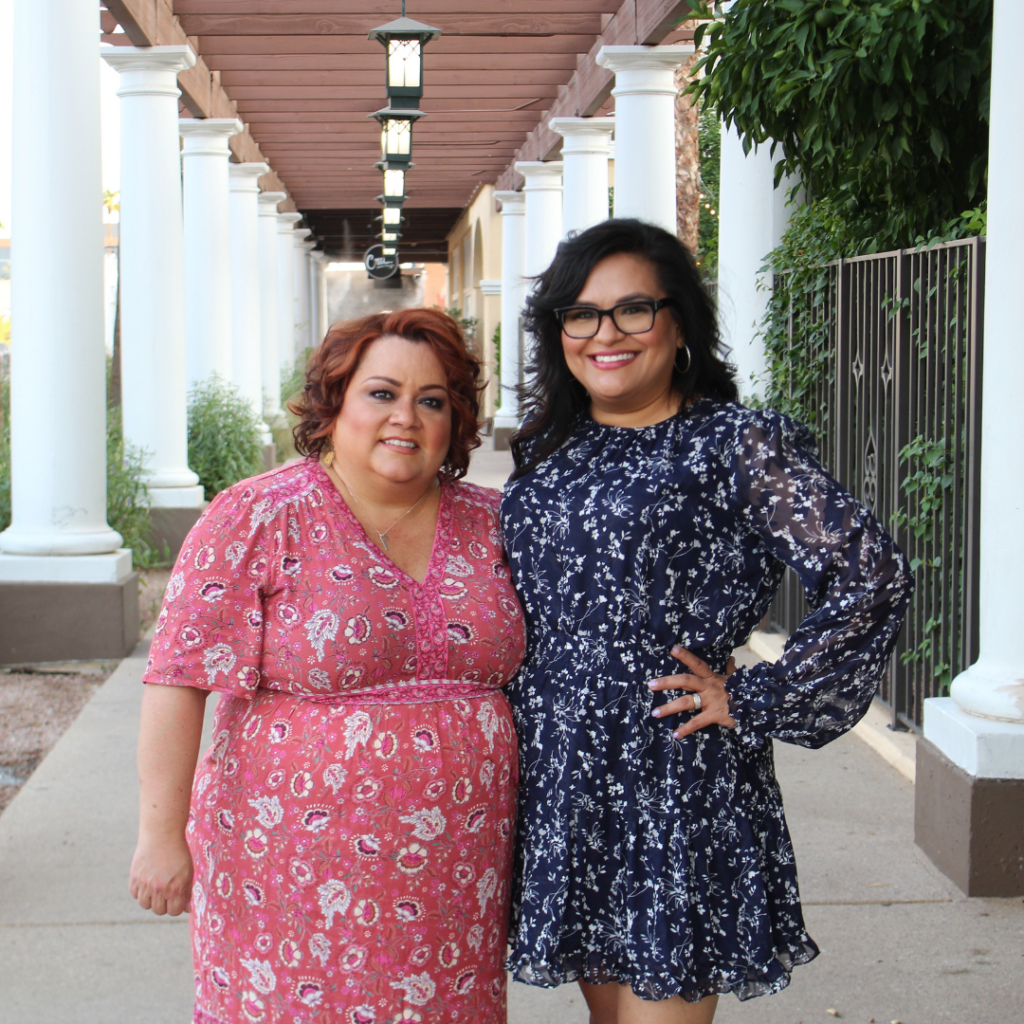
ADOT MVD Regional Manager Bonnie Palomo’s donation story starts in 2007. A living kidney donor stepped forward to save her father-in-law’s life. Two years later, deeply moved by that selfless act, Palomo underwent testing to see if she was a match for Randi Ruiz, 29, a friend and co-worker who was in renal failure.
Ruiz was with Palomo when the transplant center called in 2009. They were a match and the two women embraced, crying tears of joy over the news.
“I felt relieved and humbled to my core,” Palomo says. “It became real in that moment.”
The two families remain extremely close and participate in the annual NKF Kidney Walk Phoenix with a transplant support team called Recycled Pars.
“Our family has always advocated for donation,” says Palomo. “Interestingly enough, I started with MVD in April, which is Donate Life Month. The heightened awareness of this initiative immediately made me feel at home.”
THE PROOF IS IN THE NUMBERS
Registrations at ADOT MVD locations are measured through a metric called donor designation rate (DDR), which is the amount of people who checked the box in comparison to the total number of credentials issued. Our driver license partners achieved the following numbers in 2023:
71 of our 115 locations increased their DDR by an avg of 11% compared to 2022
36 of those locations achieved at least 40% DDR
10 locations achieved at least 50%
1 location achieved 70%
second chances
“I remember falling asleep one night and waking up about two days later finding out I had been medevac’d to Denver,” says Kenny Hanson, a liver recipient. “When I woke up, I was in stage 4 liver failure.”
After her brother received a life saving transplant, his sister and MVD employee, Kari Webb, uncovered a whole new meaning to the question, “Do you want to register as a donor?”.
Read more at MVD and Donate Life Arizona celebrate National Donate Life Month.
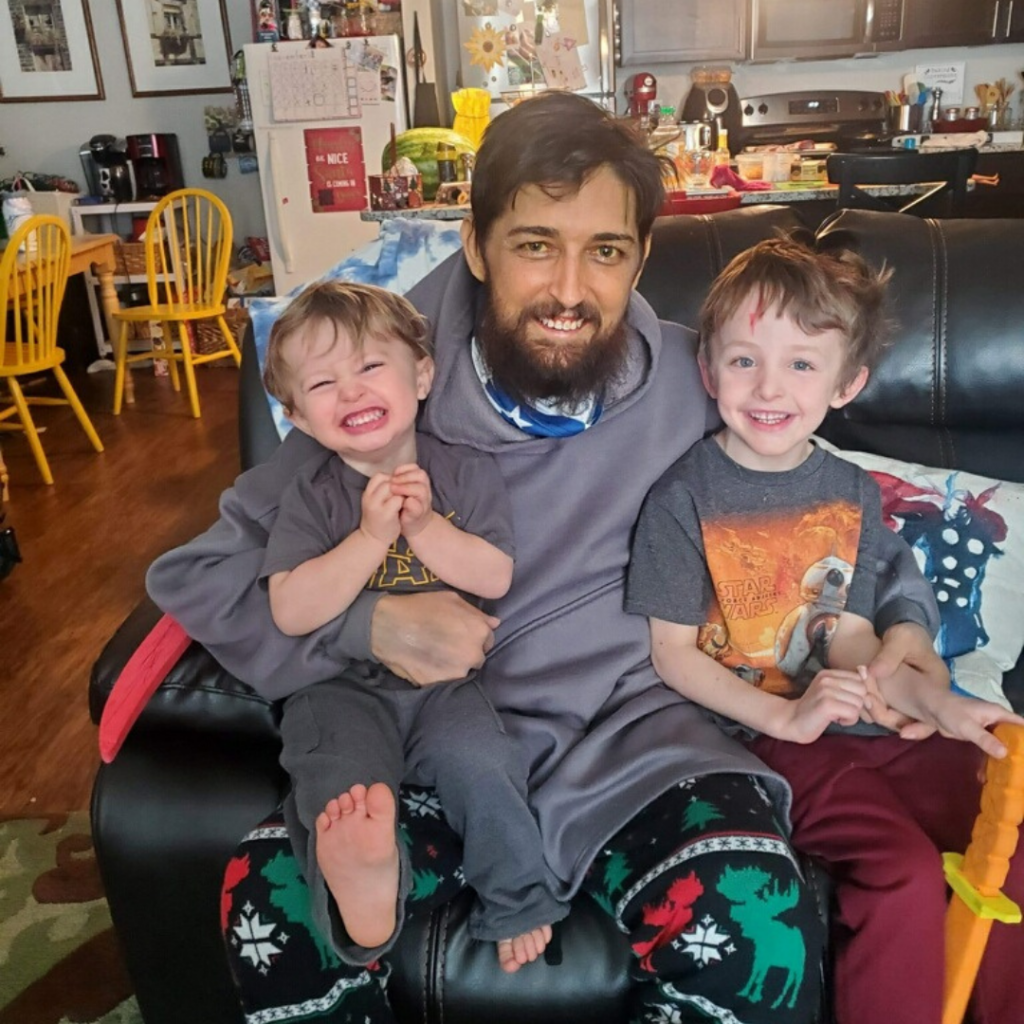
how you can register
By now, you know you can register at an ADOT MVD or third-party office while applying for your driver’s license or state ID. If you won’t be stopping by one any time soon, register today at DonateLifeAZ.org.
One voice, one vision
CELEBRATING MULTIETHNIC DONOR AWARENESS MONTH
Join us this August as we celebrate National Multiethnic Donor Awareness Month (NMDAM). Donate Life Arizona joins the observance in efforts to continue saving and improving the quality of life of all communities by creating a positive culture for organ and tissue donation.
NMDAM started out as National Minority Donor Awareness Week, which was founded in 1996 by the National Minority Organ Tissue Transplant Education Program (MOTTEP). It was originally created to bring awareness to donation and transplantation in multicultural communities with a primary focus on African American, Hispanic, Asian American and Pacific Islander (AAPI) and Native American communities.
During NMDAM, organ donation organizations can shed a light on the need for more organ and tissue donors within multicultural communities, provide donation education, offer opportunities for registration, and highlight stories of donation and transplantation. NMDAM is a vital effort to drive the positive messages that are needed for multiethnic communities to make the decision for organ and tissue donation.
STARTING THE CONVERSATION
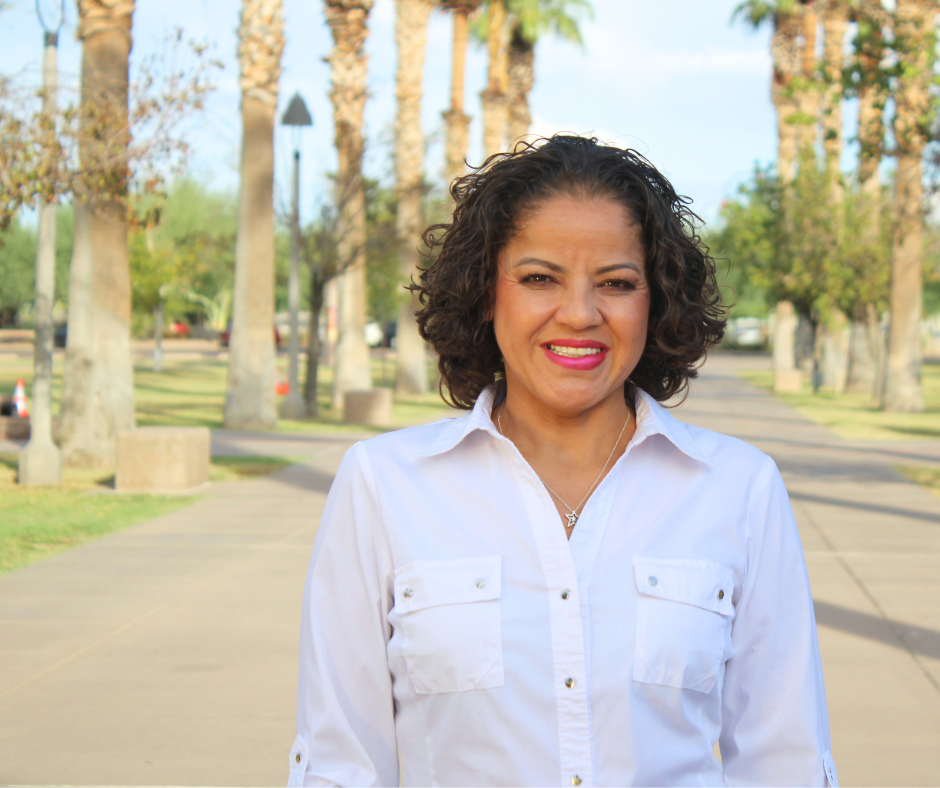
Remember Nancy? She was featured in January in the 2023 Donate Life Arizona calendar as a kidney waiting list patient. A little more than seven years after going into kidney failure, Nancy Castillo got a call from her transplant team that they had found a match in early April 2023.
Well before knowing she would get this transplant, she made it her mission to share her story with anyone who lent an ear. She opened up about her health battles with multiple news outlets—including ABC 15
and Prensa Arizona. She also walked the route of the Fiesta Bowl Parade in Central Phoenix, no small feat for someone in kidney failure. To her, it was worth the struggle to ask more people to register, encourage others to consider living kidney and liver donation, and to inspire meaningful conversations.
“I think our Hispanic culture has a lot to learn about organ donation, and I’m doing my part to get rid of the misconceptions,” she says. “I see life from a different perspective now and have become more grateful for the little moments in life.”
DONATION AND TRANSPLANTATION IN MULTIETHNIC COMMUNITIES
Organ and tissue donation and transplantation in multicultural communities happens all year long and can be cross cultural.
Transplants can be successful regardless of the ethnicity of the donor and recipient. However, the chance of longer-term survival may be greater if the donor and recipient are closely matched in terms of their shared genetic background for most organs.
In 2022, 348 Arizona donors gave the gift of life. Of those Arizona donors, 148 came from people in multiethnic backgrounds.
IT'S ABOUT HELPING OTHERS
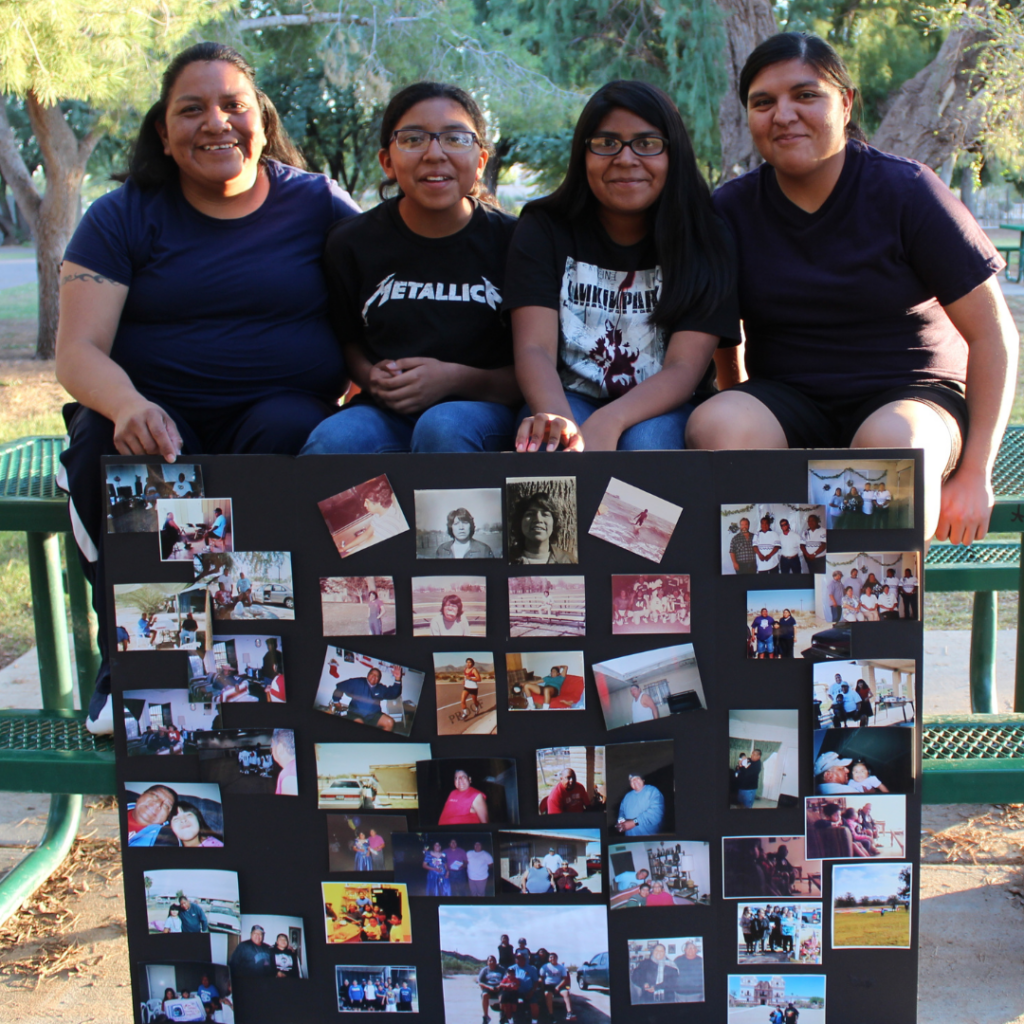
For 35 years, Danny Eschief worked as a tribal recreation coordinator with the Gila River Indian Community–specifically the Akimel O’Otham group. His daughter, Debbie Eschief, says people were easily drawn to him, and that’s how he was so successful in bringing the community together through sports.
“We never really talked about organ donation in our Native culture and our traditions,” Debbie says about when she learned her father registered himself. “He just said, ‘If somebody can use it, I rather somebody benefit.’”
Danny’s decision to give others a second chance helped more than 20 people, combining donated skin tissue, bone tissue, corneas and organs. “I think he would be happy that he was able to help other people,” says Debbie.
YOU CAN SAVE AND HEAL
Together, we can save and improve the quality of life in diverse communities by creating a positive culture for organ and tissue donation. Let’s create a more inclusive transplant community that celebrates the diversity of our nation and ensures equal access to lifesaving treatments for all.
How? One way is to join the DonateLifeAZ Registry when you apply for or renew a driver’s license or state ID at an ADOT MVD office. You can also register online today at DonateLifeAZ.org.
Batter up! For Donate Life Day at the D-backs
HONORING DONATION HEROES
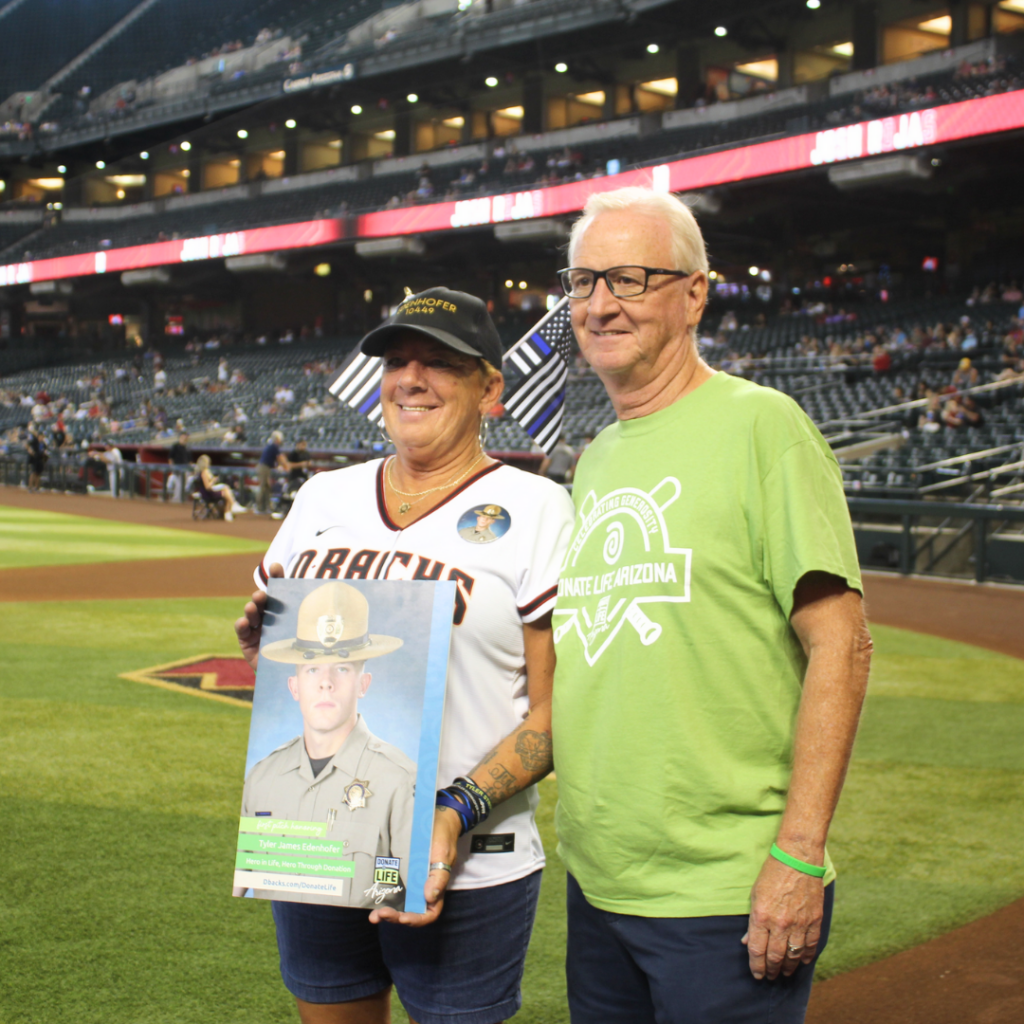
“He always lit up a room when he walked in and affected so many people,” says Deborah Edenhofer, donor mother.
Her son, Arizona Department of Public Safety Trooper Tyler James Edenhofer, passed away after he suffered a gunshot wound. In the depths of tragedy, Tyler was able to donate. Two women in Arizona regained their vision through his corneas. Both can now take in the desert sunsets or see their loved ones’ smiles. Tyler also donated different types of tissues that helped roughly 20 more people to lead healthy, fulfilling lives.
Debbie honored her late son by throwing the first pitch at the annual Donate Life Day at the D-backs last year. She says she wants him to be remembered as a hero. “He was my hero.”
COMING FULL CIRCLE
Generosity always seems to come full circle. This year, heart recipient Claire Filson will stand on the mound and throw the first pitch during Donate Life Day at the D-backs on July 30.
At 22 years old, Claire was diagnosed with giant cell myocarditis, an autoimmune disease that attacks the heart tissue. Despite several months of treatment, her heart only functioned at about 9% and she joined the national organ waiting list. Claire received a new heart after three months and recently celebrated her 9th heart-iversary!
“Receiving a heart transplant has made me a happier person,” says Claire. “I don’t want to waste a single moment of my life doing things that aren’t authentic or fulfilling.”
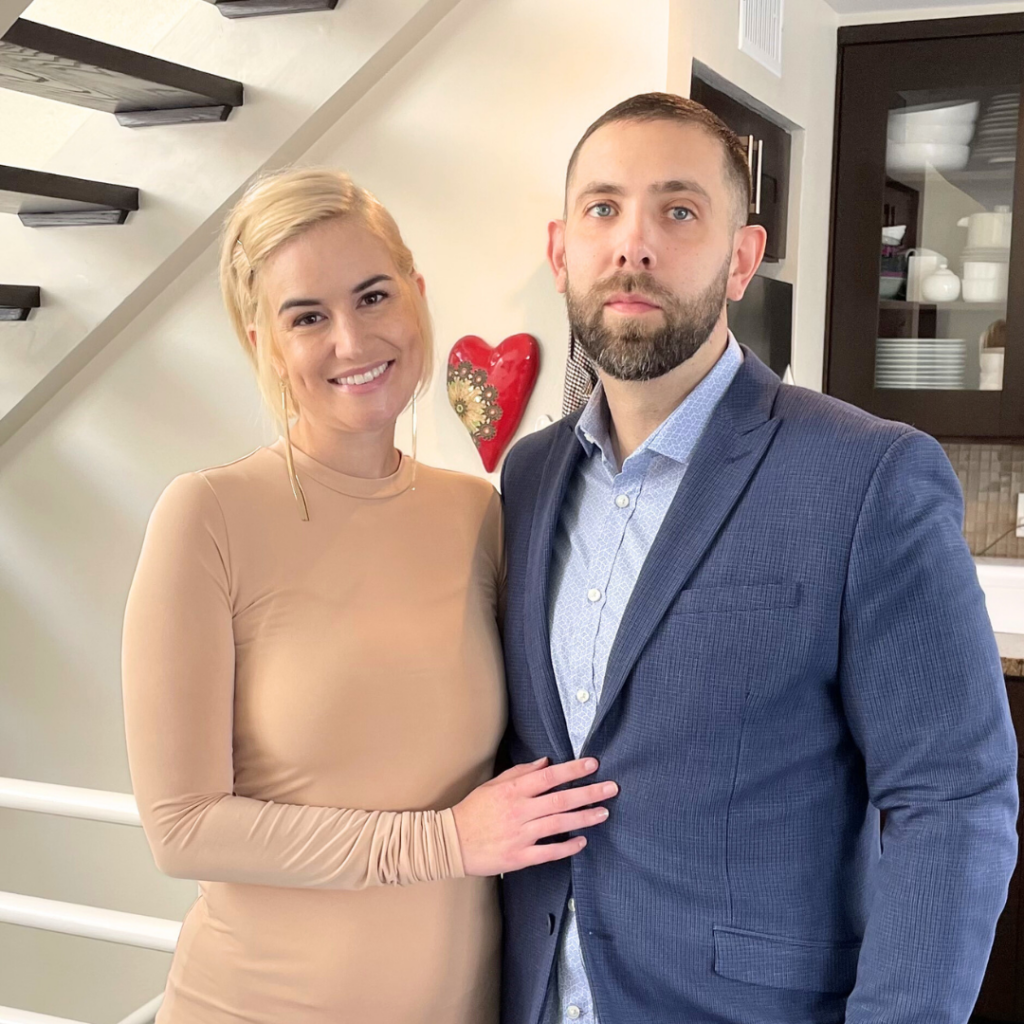
CELEBRATE WITH US!
Our annual Donate Life Day at the D-backs is so much more than a game. It’s an opportunity for Arizonans to call attention to the generosity of donor heroes like Tyler, their families and all donation champions! Thousands at the game and viewers from across the country get to see Donate Life Arizona celebrate generosity.
Join us this year on Sunday, July 30 for a 1:10 p.m. game against the Seattle Mariners. Tickets are available at a discounted price of $20. Each ticket includes a Donate Life or Done Vida T-shirt and a small gift from the D-backs. Get yours today!
IF YOU CAN’T JOIN US
If you can’t be at the game, there’s still plenty of opportunities to support and champion the Donate Life cause.
We encourage everyone to register as an organ, eye and tissue donor! Join the DonateLifeAZ Registry when you apply for or renew a driver’s license or state ID at an ADOT MVD or authorized third party office. You can also register online today at DonateLifeAZ.org.
Want to get more involved in sharing the lifesaving message of donation?
Donate Life Arizona is always looking for people to be a voice for donation and transplantation throughout Arizona. Individuals can volunteer, help us promote donation and participate in one of our many partnerships. For more information or to complete an application, visit the link below.
LGBTQ? You can donate too!
Can members of the LGBTQ+ community register as an organ, eye and tissue donor or receive a transplant?
YES!
REGISTERING & RECEIVING
A person’s sexual orientation, gender, gender identity or expression does not prevent them from becoming an organ, eye and tissue donor (deceased or living). Everyone is encouraged to register their decision to become a donor!
This is because organ donation is regulated differently than other types of donation. The eligibility of organ donors, LGBTQ+ or not, is regulated by Health and Human Services (HHS). While such infections are not exclusive to the LGBTQ+ community, it’s important to note that HIV and hepatitis C infections no longer prevent the possibility of lifesaving organ donation thanks to the HOPE Act. Learn more about the HOPE Act here.
Cornea and other tissue donations are regulated by the Food and Drug Administration (FDA) and may include medical and lifestyle exclusion criteria that denies members from some avenues of donation. But medical professionals make those determinations after someone has passed away. Meantime, any person’s donation registration is valid.
Sexual orientation and gender identity or expression are never considered during the transplantation processes either. The United Network for Organ Sharing (UNOS) matches available organs from the donor with people on the waiting list based on a variety of criteria, including:
- Blood type
- Body size
- How sick they are
- Donor distance
- Tissue type
- Time on the waiting list
SECOND CHANCES
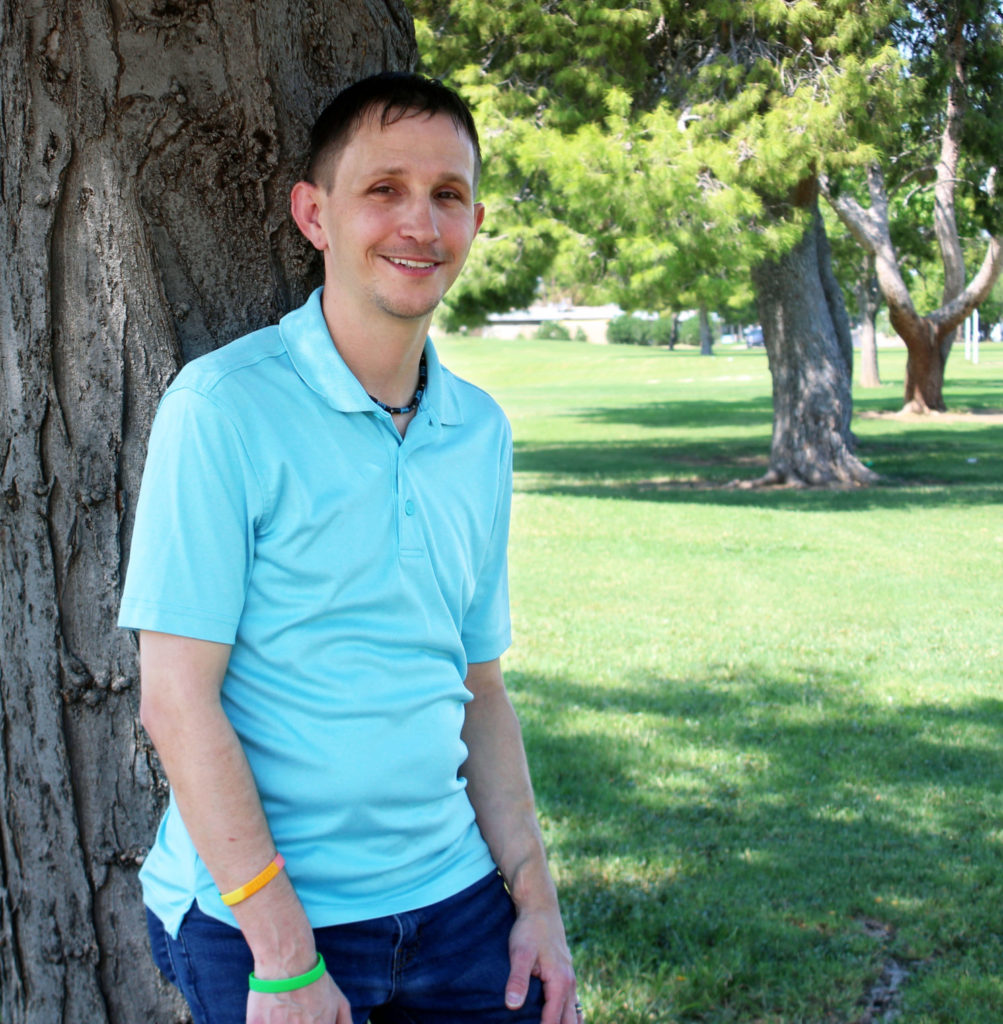
Kidney recipient Michael Learned and his husband, Matthew, got to meet his donor’s family after years of communication. Learned was diagnosed with Type 1 diabetes as a child and knew he would need a kidney transplant in the future to save his life.
Michael later received a second chance at life thanks to the generosity of his organ donor, Jordyn Avelar. Many help save and heal lives of people like Michael through their decision to register as organ and tissue donors.
MYTH BUSTING
Allocation policies to place organs do not include other factors, such as wealth or celebrity, immigration status nor personal relationship to a medical professional. Organ distribution prioritizes helping the sickest patients get a second chance. Period.
ONGOING EFFORTS OF INCLUSIVITY
We are actively improving our outreach to the LGBTQ+ community. Our Arizona donor registration cards now have a “non-binary” gender option so that everyone has the opportunity to register as an organ and tissue donor.
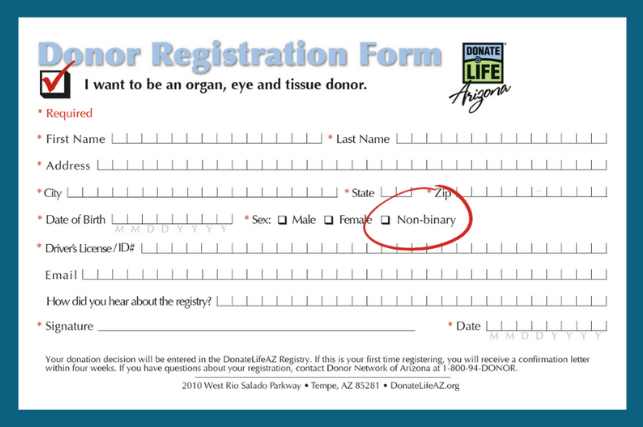
BATTLING MISCONCEPTIONS
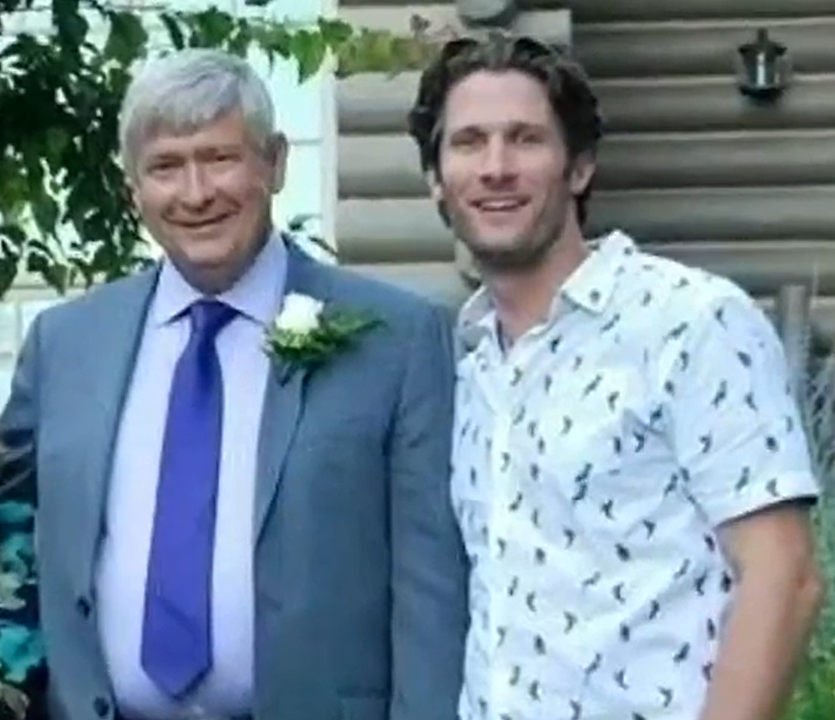
Andrew Banacki, living kidney donor from Ohio, has helped combat the misunderstandings that that have encountered the LGBTQ+, transplant and donation communities by sharing his family’s story. Banacki is a proud gay man, and he was able to give his father a second chance at life by donating his kidney to him.
“I think in the gay community there’s a huge misconception that – say I’m a gay male – I can’t give blood, so nobody’s going to take my organs,” says Kent Holloway, former CEO of LifeLine Ohio at the time of Banacki’s interview.
There are truly no limitations to who can register as an organ and tissue donor. Throughout Pride Month, we encourage members of the LGBTQ+ community to register and celebrate the diversity that lies within the LGBTQ+, transplant and donation communities.
No matter how you identify, you can leave a lasting impact! Join the DonateLifeAZ Registry when you apply for or renew a driver’s license or state ID at an ADOT MVD office. You can also register online today at DonateLifeAZ.org.

The Gift of Sight: Celebrating Eye Donation Month
Alan Taylor, director of Tissue Services at Donor Network of Arizona (DNA), was in high school when he received the diagnosis that he was in early stages of keratoconus. Keratoconus occurs when your cornea becomes distorted, and in Taylor’s case, caused his vision in his left eye to eventually be nothing more than color and movement.
“I couldn’t see people. I would be virtually blind…it was like looking through a kaleidoscope.”
As an early intervention, Taylor was wearing bifocals in college, trying to read through his coursework and live his life like any other student.
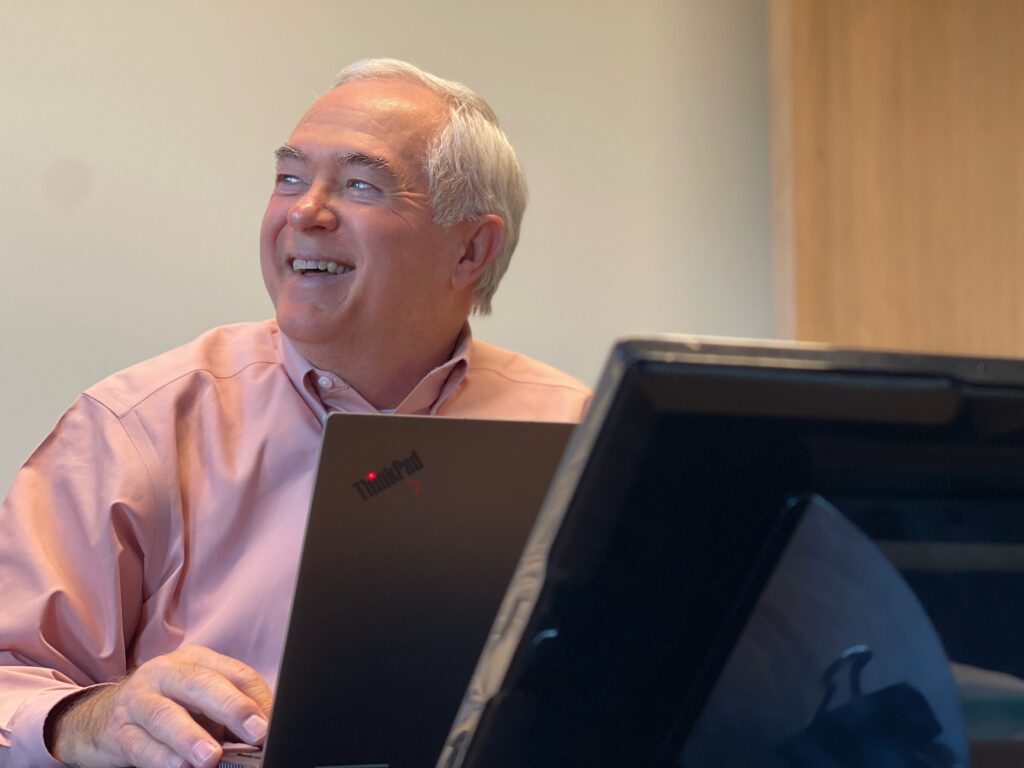
Alan Taylor, director of tissue services at DNA, has 14+ years of eye banking experiences helping others get their vision back, like he did through donation.
In December 1995, he received his first cornea transplant. Immediately after the doctor took off the bandages on his healing eye, Taylor says he could see the details of the outlet on the wall across the room. Something so simple meant so much to him, and it was possible because a 19-year-old woman had given the gift of sight through cornea donation.
Fast forward nine years later, and Taylor was in a mountain bike accident that severely damaged his left eye. He ultimately needed a second cornea transplant.
“I was essentially a young guy, and [being visually impaired] made interactions with my family different. It was difficult because I knew I wasn’t present all the time. I didn’t participate as I should’ve.”
Thanks to the generosity of a 75-year-old man, Taylor’s vision was once again restored. After receiving his second transplant, he didn’t have those limitations that took time from his family.
“It changed my life and changed my son’s life, my children’s life.” Taylor’s journey with cornea donation is one of many stories and lives that have been changed for the better because of cornea donors.
“It’s a tremendous gift and I think about it on a daily basis.”
Cornea donation process
November is Eye Donation Month, and the cornea is one of the many tissues that can be a healing gift for someone in need. A cornea transplant involves the replacement of a diseased or scarred cornea with a cornea recovered from a donor.
DNA is a full-service eye bank, and works with ophthalmologists and surgeons locally, nationally and even internationally to help restore sight.
Luckily, there is not currently a waiting list for cornea transplants in the U.S., and most people have their cornea transplant within 30 days of needing it.
Not without its challenges
In 2020, we had toilet paper and hand sanitizer shortages. Years later, the domino effect hit less crucial items, such as carbon dioxide for carbonated beverages or the right ingredients for certain hot sauces. But the gift of life was not left out of supply chain issues.
The country was running out of a cornea preservation solution in 2022. In an era of scarcity, the DNA team was creative and resourceful, because organ, eye and tissue recipients depend on us every day.
DNA was so agile and vigilant that this cornea preservation solution shortage didn’t affect recipients. Our team even shared this vital resource with other eye banks struggling with similar limitations, so that they too could meet an ongoing need.
How you can help
Cornea donation is a life-changing procedure, and this process is possible because of the generous decision of donors. However, unlike cornea donation, there sadly aren’t enough organ donations to save the lives of everyone on the national waiting list. Yet! We have been working hard to change that. Each year, the country’s organ donation system gets closer to the 50,000 yearly transplant goal. That’s largely because we never lack support when it comes to our professional partnerships, the community, and the people who say yes to the gift of life.
We all may be in need of certain supplies, and face the challenges that this brings, but we have an abundance of hope to offer because we get so much of it from you. Registering to be a donor can help so many people who are awaiting a transplant, and lives are changed every day thanks to those who have registered. Register today at www.DonateLifeAZ.org.
Breast Reconstruction Awareness (BRA) Day
When Cait Kelley found a lump in her breast, her doctor assured her it was “probably nothing,” she says. After trusting her gut and demanding a mammogram, that lump became “definitely something” in the span of a week. She was diagnosed with stage 4 metastatic breast cancer at 33, a diagnosis that often comes with a three-to four-year prognosis.
As anyone can imagine, the news was concerning. She spent countless hours researching the cancer diagnosis and looking into clinical trials, treatment and more. Cait was prepared for the worst entering her appointment with her oncologist, breast surgeon and plastic surgeon. To her surprise, her doctors looked past the outdated statistics and instead, they saw an otherwise healthy 33-year-old woman and told her they were going to treat her with “curative intent,” essentially with recovery as an option.
Treatment with Curative Intent
Cait was treated with aggressive chemotherapy and surgery. She spent six months fighting through eight rounds of chemo and medication, and at the end of 2020, her tumor was miraculously gone.
Due to the fear of the cancer coming back, Cait was ready to get a double mastectomy with no reconstruction. When she stepped into her appointment with her plastic surgeon, he both validated her concerns and gave her all the options before she made her decision.
Decisions Based on Hope
Cait prayed to the universe to give her a sign on what decision to make. The night before she had to decide, she read a quote in “Becoming” by Michelle Obama that stood out to her: “Don’t ever make decisions based on fear. Make decisions based on hope and possibility.”
This brought her clarity, and on Dec. 29, 2020, a day before her 34th birthday, she had a double mastectomy with reconstruction.
Two years later, she’s happy with her decision because she feels physically and mentally improved. Because the doctors lead with hope, she is now declared NED (no evidence of disease).
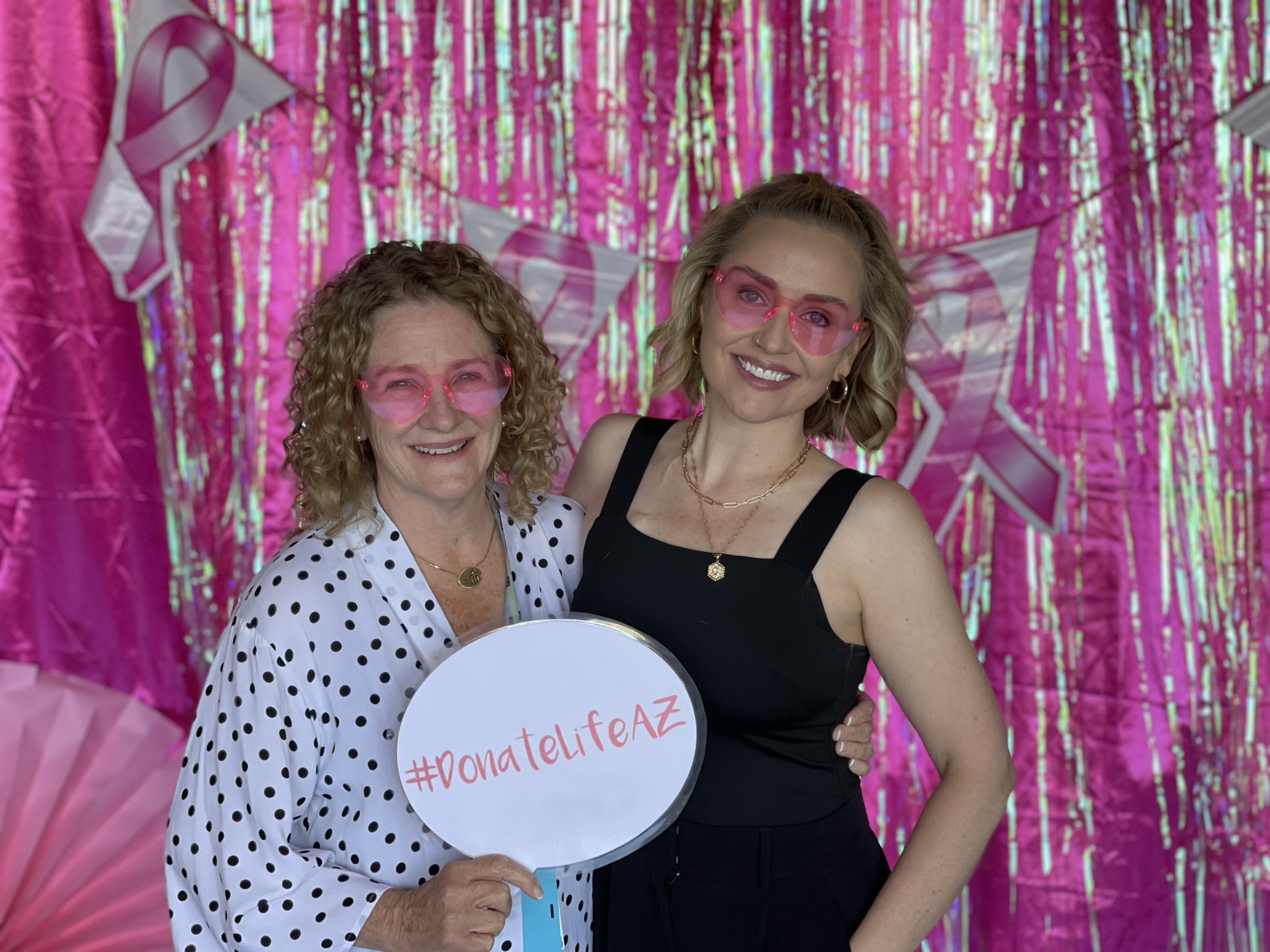
Celebrating BRA Day
On Oct. 19, 2022, Donor Network of Arizona (DNA) celebrated Breast Reconstruction Awareness (BRA) Day by hosting an event where Cait shared her story with staff. BRA Day is a national observance designed to promote education, awareness and access to information regarding post-mastectomy breast reconstruction options.
Breast reconstruction is often made possible through the generosity of tissue donors. Just one tissue donor can help up to five people with reconstruction following mastectomy.
Cait received a life-changing gift of tissue, though not during her reconstruction surgery. In 2016, she underwent surgery to repair hip dysplasia, and thanks to a generous donor, was able to run again.
“I was sidelined from so many things, and that person gave me my life back,” said Cait.
We host events like these to make sure women and men of all ages have information on breast cancer and know what to look for during a self-examination. After Cait’s presentation, the afternoon continued with activities like making cards for patients with cancer, signing a pink ribbon in honor of a loved one and a fun photobooth to help spread this message across social media platforms.
To register as a tissue donor and give hope, please visit DonateLifeAZ.org.
